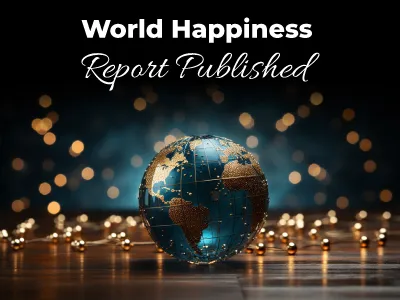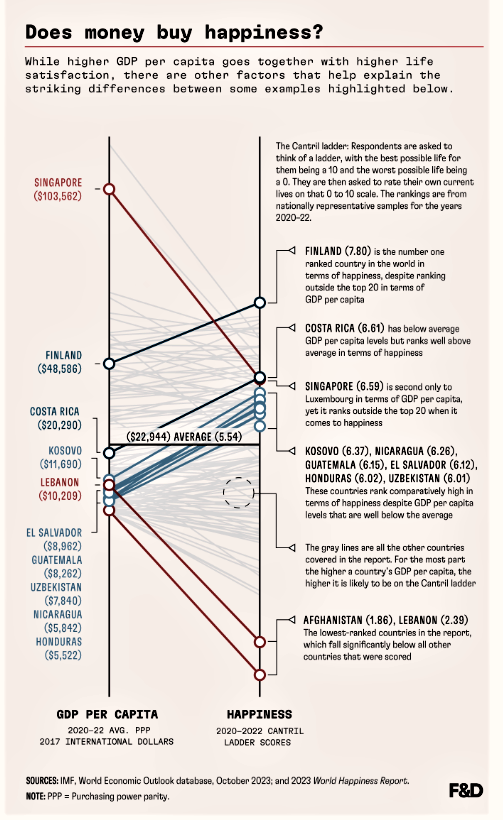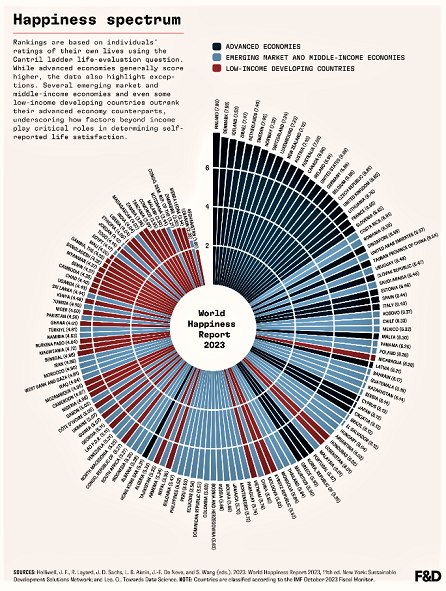
The World Happiness Report is leading the search for more holistic measures of well-being.
More than 50 years ago, US Senator Robert F. Kennedy famously criticized Gross Domestic Product (GDP), saying it "measures everything... except what makes life worthwhile". Since then, significant efforts have been made to look beyond GDP to seek more comprehensive ways of measuring well-being to help improve people's lives.
The 'World Happiness Report ,' therefore, is a critical resource in this research, providing a comprehensive look at self-reported life satisfaction scores across countries. In the decade since its inception, it has thus evolved from a novel concept to an influential factor driving progress in incorporating well-being measures into policymaking. Comparing GDP per capita to the happiness scores in the report makes it clear that while GDP per capita is an important indicator of happiness, it is not the only factor. As the report outlines, other variables such as social support, life expectancy, freedom, generosity, and the absence of corruption also help explain the varying levels of happiness across countries.

The report calls for a reassessment of success, advocating for policies that promote economic growth and improve quality of life. Opinion leaders argue that by integrating happiness as a core objective, governments can take a more holistic approach to policymaking and ensure that progress is measured not only by material wealth but also by the well-being of citizens.
Some countries have already made progress in this direction. For example 2019, New Zealand introduced the Prosperity Budget , targeting critical societal areas such as mental health and child well-being.

Source: https://www.imf.org/en/Publications/fandd/issues/2024/03/Picture-this-looking-beyond-GDP
 Back
Back







